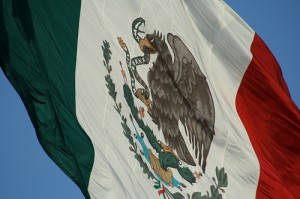Mexico’s Democracy is Abusing Human Rights

In recent months, the media has widely reported on the continuous human rights violations committed by members of the Mexican military. While news of these atrocities only recently surfaced on major news stations, Mexican authorities, in fact, have been struggling with human rights abuses since 2007 when these pivotal events first started to come to light. Such atrocities peaked during President Felipe Calderón’s six years in office, as police and armed forces have been found to be involved in at least 170 cases of torture, 24 extrajudicial killings, and 39 forced disappearances since 2006.1 When President Calderon first came to power, he dispatched military forces throughout Mexico in an attempt to take down the drug cartels and deter the violence generated by rival criminal organizations fighting over territory and clientele. Instead of reducing violence, the military forces began perpetuating the very crimes they were charged with stopping. In a country where drug cartels have been coexisting with civil society for years, the police and military forces became embedded in the pockets of the traffickers. In Mexico, the cartels are dominate specific geographical parts of the country, and the fight for influence and expansion of territory is constant. These drug cartels are not managed by corner thugs and criminal layabouts, but by sophisticated businessmen who employ a vast network of individuals which include financial officers, hit men, and lieutenants.2 Mexico is a poor country containing many immensely wealthy individuals. Most Mexican citizens, however, struggle daily to bring food to the table to feed their families. In order for the drug cartels to be able to operate in a country like Mexico, it is widely believed that the government has to be, directly or indirectly involved in supporting these criminal elements. Accusations that the country’s various police forces have been corrupted by the cartels have been mounting for decades and unquestionably have merit to them. The fact that almost no major progress has been made towards dissolving Mexico’s drug cartels shows that the police departments have been deeply compromised by bribery, corruption, and venality.
Narcotics dealers also have been exerting a steadily increasing influence over Mexican authorities that could complicate efforts to contain and neutralize the drug cartels. With their operations spreading throughout the country, the cartels’ bribery tactics are having an impact not only on the poor but also on many high ranking government officials. Recently, US officials found a sophisticated drug-smuggling tunnel under the border of Mexico with the U.S. Considering the fact that such a project would take many weeks to build, some have speculated that security force members from both countries may have been persuaded to look the other way as local drug cartels continued to expand their illicit empires.
Time and again, contemporary reports about human rights violations have been inevitably backed by a victim’s family member asserting that the government statistics on human rights are inaccurate, and that many more civilians have been killed in the drug conflict than officially have been reported. Human Rights Watch reports have detailed that the majority of these victims were average citizens who had worked as farmers and mechanics, as well as factory and construction workers. No one makes a fuss over these little people when they are reported missing, and in desperation, many of their families have spoken out, contending that their murdered relatives were innocent and that they had no established ties to illegal activity. However, the police reports routinely implicate them as petty criminals in the drug war, implying that their deaths could have been expected and that there is no reason for the public to be alarmed.
Even though in Mexico, “the government is… ethically and legally obliged to use every means at its disposal, under the principle of
joint responsibility, to reinforce the presence of authorities in communities with the highest incidence of gang rivalry,”3 a persistent and critical threat is being posed by the police and military itself. Unfortunately, the security forces are stripping citizens of the power and authority to sustain pressure on the government to stop pretending that it is attempting to protect the rights of ordinary Mexicans when this is clearly not the case.
For references on this article, click here.

